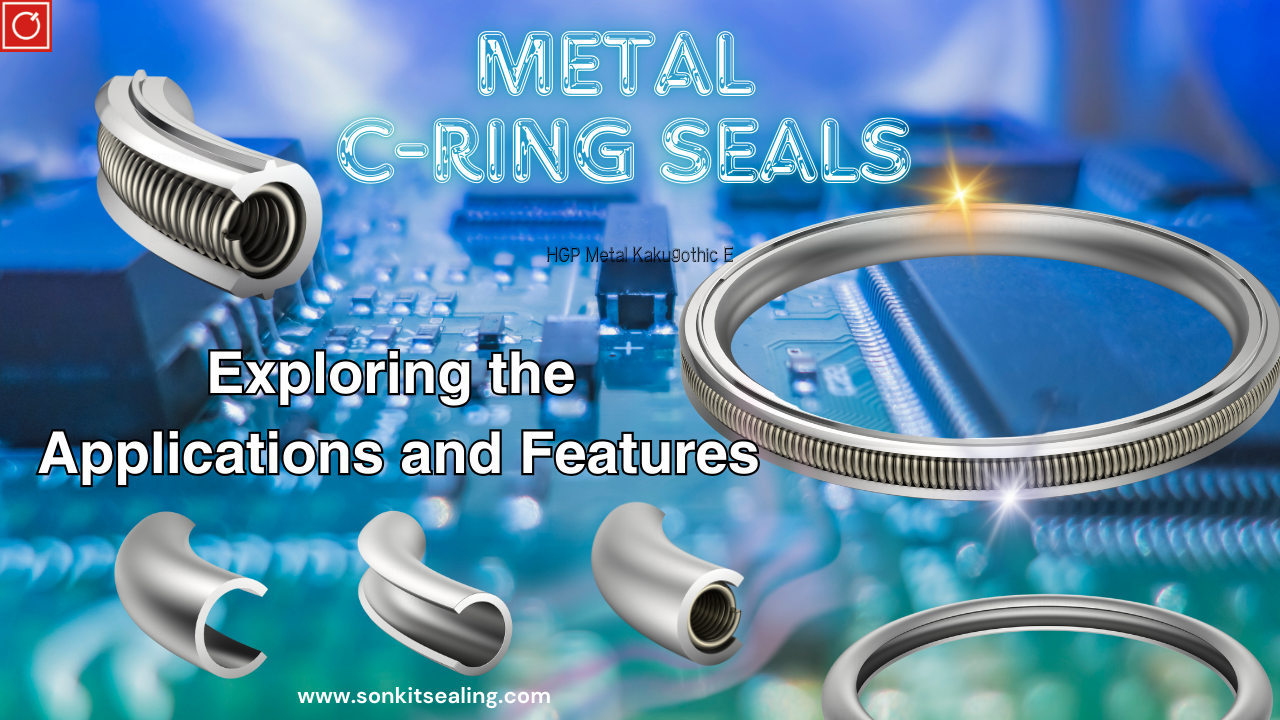Exploring the Applications and Features of Metal C Rings: A Comprehensive Guide
Metal C Rings, also known as Metal C Seals or C Ring Seals, are versatile and widely used in industries that demand high-performance sealing solutions. Crafted from stainless steel or alloy strips, these seals are engineered to withstand extreme conditions, such as high temperatures, high pressures, and ultra-high vacuum environments. Their unique design and material composition make them the go-to choice for critical applications in aerospace, oil and gas, nuclear energy, and more.

Applications of Metal C Rings
1. High Pressure and Corrosive Environments
Metal C Rings are renowned for their excellent pressure-bearing capacity and corrosion resistance, thanks to their robust construction using stainless steel or alloy materials. These seals excel in challenging environments such as oil rigs, chemical plants, and power generation facilities.
2. High-Temperature Applications
With the ability to maintain stability in temperatures ranging from -252°C to 800°C, Metal C Seals are ideal for industries like aerospace and defense, where thermal resistance is critical for safe and reliable operation.
3. Vacuum and Ultra-High Vacuum Systems
In vacuum systems, C Ring Seals are prized for their low outgassing properties, which help maintain the integrity of high-precision vacuum environments. They are commonly used in semiconductor manufacturing, scientific research facilities, and space exploration applications.
Key Features of Metal C Rings
1. Material Composition
Metal C Rings are typically made from stainless steel or high-grade alloy strips. This material choice ensures excellent durability and resistance to extreme conditions, including high radiation, corrosive environments, and fluctuating temperatures.
2. Compact Design and Versatility
The Metal C Seal is compact and occupies minimal space, making it suitable for tight and confined systems. It requires low sealing pre-tightening force and does not contaminate the sealed medium, making it ideal for high-purity applications.
3. Customizable Core for Pressure Conditions
The core of the Metal C Ring Seal, often composed of metal wires with varying diameters and densities, can be tailored to meet specific pressure requirements, ensuring its versatility across multiple industries.
4. High Performance in Harsh Conditions
With its ability to withstand high pressures and temperatures, the Metal C Seal provides reliable sealing performance in even the most demanding environments.
Advantages of Metal C Rings in Vacuum Systems
1. Reduced Outgassing
Unlike traditional rubber seals, Metal C Ring Seals have a significantly lower outgassing rate, ensuring minimal contamination in ultra-high vacuum systems.
2. High-Temperature Baking Capability
Metal C Seals can endure high-temperature baking and degassing processes, essential for achieving ultra-high vacuum conditions. Rubber seals, except for specialized materials like fluorine or silicone rubber, typically fail under such circumstances.
3. Resistance to Corrosive Environments
The Metal C Ring’s construction from stainless steel or alloy ensures superior resistance to chemical erosion, making it a reliable choice for corrosive applications.
Challenges of Metal C Seals
While Metal C Rings offer exceptional benefits, they also come with certain limitations that need to be addressed:
1. Limited Elasticity
Metal C Seals have relatively poor elasticity compared to elastomeric seals, requiring higher sealing forces to ensure a reliable seal.
2. Single-Use Limitation
Many C Ring Seals are designed for one-time use, particularly in critical applications, which can increase costs in some scenarios.
3. Precision Requirements
The flange sealing surfaces and knife edges must meet high precision and roughness standards. Minor imperfections can compromise the seal’s effectiveness, making large or complex flanges challenging to manufacture.
4. Thermal Expansion Issues
Differences in the thermal expansion coefficients of the Metal C Ring Seal and its mating surfaces can lead to air leakage due to deformation under uneven heating.
Conclusion
Metal C Rings, also known as Metal C Seals or C Ring Seals, are indispensable for applications requiring high-temperature resistance, pressure durability, and chemical stability. While they pose certain challenges, such as high precision requirements and limited reusability, their exceptional performance in harsh environments makes them a reliable choice for industries with demanding sealing needs.
For industries like aerospace, oil and gas, nuclear energy, and semiconductor manufacturing, Metal C Rings remain an unmatched solution for maintaining sealing integrity under extreme conditions. Their versatility, durability, and adaptability ensure that they will continue to be a preferred choice for critical applications.

 Language
Language
 China
China German
German French
French Italian
Italian Spanish
Spanish Turkish
Turkish Arabic
Arabic Dutch
Dutch


 Service
Hotline
Service
Hotline
